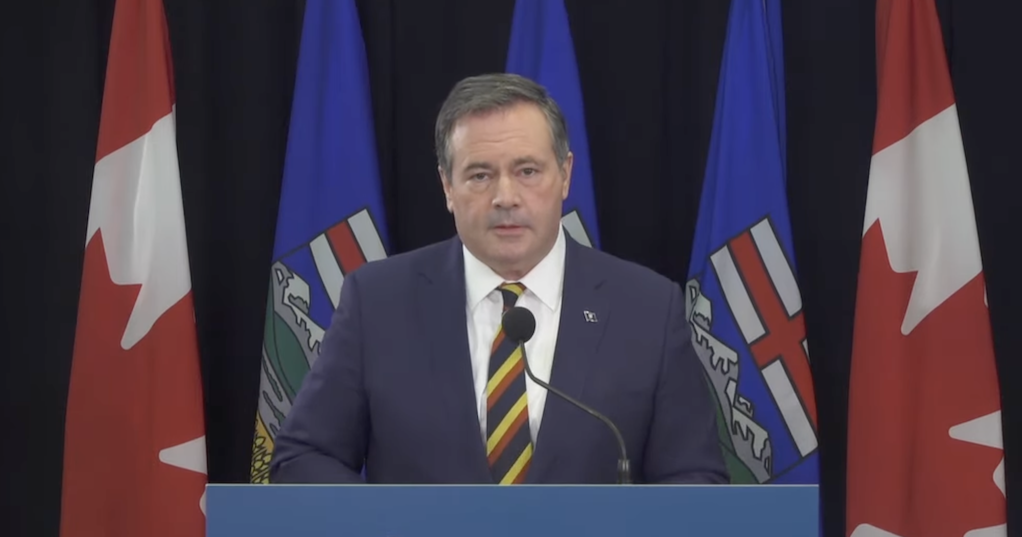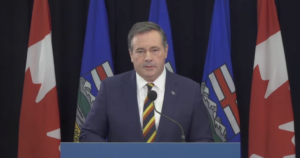
Alberta Government Secretly Interfering with Public Employee Contract Negotiations: Report
UCP’s interference could lead to significant labour unrest this year
Labour experts are warning of government interference in public sector bargaining as 80% of public employees head to the negotiating table this year.
A recent report published by the Parkland Institute says policies brought in by the United Conservative Party by Jason Kenney and later expanded under Alberta Premier Danielle Smith will put workers at a disadvantage in bargaining due to enforced secrecy imposed on employers by the government.
“Public-sector workers and their unions should prepare for the government to interfere with bargaining to a degree never before seen in Alberta.”
Parkland’s new report examines the reality and prospects for the 2024 round of negotiations: https://t.co/0n0obHyoFQ pic.twitter.com/aocNFDi6YZ
— Parkland Institute (@ParklandInst) February 23, 2024
The most recent developments in Alberta’s decades-long history of government interference in bargaining are the introduction of “secret mandates” that bind employers to a set of non-negotiable boundaries that, in effect, can never be disclosed.
The UCP also expanded government mandates to include non-unionized public sector employees.
This legislation is a first of its kind in Canada. For those negotiating on behalf of the employees and the 200,000 affected workers across the province, this means bargaining will be a guessing game with no way of knowing which issues are negotiable.
This in effect makes the government the “ghost at the table” during bargaining. Report co-author Susan Cake, an Assistant Professor of labour relations and human resources at Athabasca University, says this created significant problems during the last bargaining session.
“It’s all secret, so the employer at the table can’t disclose before, or long after, what their mandate was. When they did this last time we found that it deteriorated with the folks doing bargaining because it created a distrust, where you’re not actually bargaining with the people at the table you’re bargaining with someone who isn’t there,” Clark told PressProgress.
“I expect that unions are going to be more aggressive in moving things forward faster. In the last round of bargaining everything stalled out until they essentially got to arbitration.”
Sectors impacted include education, health care, health sciences, public employees, and post secondary.
The scope of the mandates is unclear. According to the report, they may go beyond secret preset limitations to wage increases to include even cost-neutral items, like workplace equity.
Secret mandates were introduced in 2019 under then-Premier Jason Kenney with the Public Sector Employers Act, which gave ministerial power for government-imposed bargaining restrictions.
This was expanded in 2023 under the Smith government’s Bill 5, which amended the PSEA to include steep fines for employers who fail to uphold the mandates.
This interference, which the report details in the context of the last bargaining round that took place amid the pandemic in 2020, could lead to significant labour unrest this year according to co-author Bob Barnetson, a labour relations Professor at Athabasca University.
“It doesn’t look to me like Smith’s government is likely going to bring their wage offer up to where the unions might find it acceptable, so a couple of things can happen. Some workers can just get frustrated and simply vote with their feet and leave, and we’re already seeing that happening with the chronic worker shortages in healthcare,” Barnetson told PressProgress.
“Those workers who don’t want to leave might then decide that they need to strike to get a fair deal, and that would cause significant disruption across the public sector since virtually every union is at the table and is going to face this kind of pressure.”
The report, which involved interviews with union negotiators and a government official, found that in 2020 the former group was compelled to “guess the mandate” of the government during negotiations, which slowed the bargaining process and left the unions unable to proceed with a strong bargaining strategy.
A repeat of this situation could create the conditions for a public sector wildcat strike, Barnetson says.
“Some workers might decide that labor laws are so rigged against them that the laws themselves are no longer legitimate, and they might decide to strike illegally, which is usually a much more effective way to strike,” Barnetson said.“That’s the range of things that can happen, attrition, a legal strike, and an illegal strike.”
The Parkland report states that over the last 20 years, Alberta governments have concentrated contract expiry dates so that public sector agreements expire within months of one another across the major sectors.
Because of disclosure restrictions, government mandates from the last bargaining session remain unknown.
Our journalism is powered by readers like you.
We’re an award-winning non-profit news organization that covers topics like social and economic inequality, big business and labour, and right-wing extremism.
Help us build so we can bring to light stories that don’t get the attention they deserve from Canada’s big corporate media outlets.
Donate



